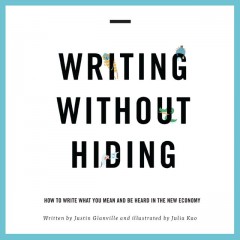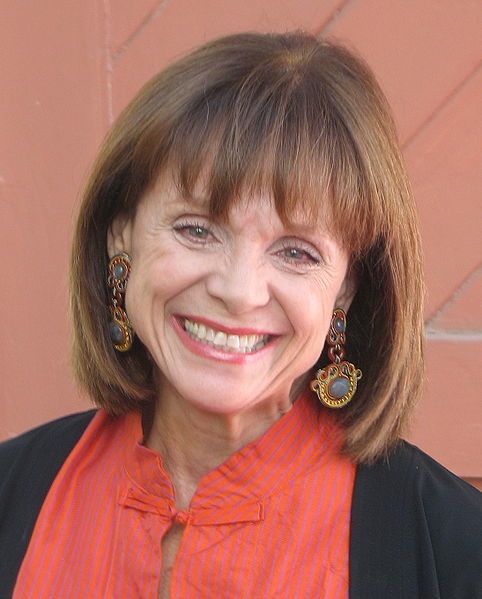Note: This is a fictional story written in the style of a news article, not an actual interview.
Valerie Harper, 74, settles into her plush sofa with a steaming mug of green tea.
“I’m nervous,” she says. “Is it normal to be nervous?”
On a television screen in front of her is footage of herself as Rhoda Morgenstern, the wise-cracking, cynical character she played on Mary Tyler Moore and its spinoff Rhoda for most of the 1970s.
The episode currently playing is one in which Mary, uncharacteristically, is having a bad day while Rhoda is having a great one.
“You’re having a lousy streak,” Rhoda tells Mary. “I happen to be having a terrific streak. Soon the world will be back to normal. Tomorrow you will meet a crown head of Europe and marry. I will have a fat attack, eat 3000 peanut butter cups and die.”
Raucous laughter.
That was Rhoda: The dark superego to Mary’s sunny id, the East Coast nihilist to Mary’s Midwestern optimist.
Yet Harper herself is a famously upbeat person, a model of resilience and positivity even against huge obstacles. When she was diagnosed with a virulent form of lung cancer in 2012, she barely slowed down, continuing to work through chemotherapy, dizzy spells and the kind of uncertainty about the future that would paralyze many people.
“Don’t go to the funeral until the day of the funeral. Live this day,” Harper told the Today show in 2013.
Harper says her positive attitude stems from the Est personal development training she underwent in the 1970s. In her autobiography I, Rhoda, published in 2012, she called the training “a wonderfully empowering experience” that helped clarify her decision-making and made her feel happier and more alive.
All of which is why a reporter asked her to meet and counsel — in real time — the negative character she played on TV four decades ago.
“So I’m supposed to talk to her like she’s a real person?” asks Harper, who looks chic and trim in a flowy floral print dress, her skin unlined and golden-toned. “As if we’re in the same room?” She laughs. “Where do I even begin?”
She sips her tea and concentrates on the screen.
“First of all, you’re not even fat,” Harper tells Rhoda. “I mean, what, maybe five pounds too heavy? It’s all about the story we tell ourselves. She’s not fat, but she’s telling herself a story she’s fat, and therefore she is fat, and feels rotten about herself.”
“Say it to Rhoda,” a reporter reminds her.
“Right,” Harper says, retraining her eyes on the screen. “Sorry. So Rhoda — you don’t have to lie to yourself and say you’re skinny. That’s not the point. But stop with the fat jokes, because they’re making the story true in your head. Replace the insults with silence.”
Another clip rolls, this one a discussion between Mary and Rhoda of the brutal weather in Minneapolis, where the show was set.
“Mary,” Rhoda says. “I came to Minneapolis because of the cold. I figured if I was frozen I’d keep better.”
Harper shouts with laughter, choking on her tea.
“That writing!” she cries. “So brilliant!”
She clears her throat. “OK, here I’d say, ‘Rhoda, you’re seeing your self-worth as limited by youth. But who knows what the future holds? You’ll learn more, you’ll develop new skills, you’ll be wiser.’”
Next up is a scene from the famous pilot episode of Mary Tyler Moore, where Rhoda tries to kick Mary out of the apartment she believes she’s entitled to.
Harper points at the screen triumphantly. “Ah! Good one. Scarcity.” She crosses her legs and leans forward. “Rhoda, you’re operating from this mindset of limited resources. That someone else’s gain is your loss. The truth is, there’s an abundance of great apartments out there. Thousands. Go find one!”
(In fact, Rhoda didn’t find one. She resigned herself to staying in the tiny attic studio above Mary until she moved back to New York City.)
Harper turns to a reporter. “It’s all so obvious, right?” she says. “I think deep down, everyone knows all this stuff I’m saying. It’s common sense. And I think Rhoda knew it, too. That she was the one limiting herself.”
The TV continues to play clips, but Harper is too wrapped up in her own train of thought to pay attention.
“That’s the thing. People say Rhoda Morgenstern was the everywoman, in the way she suffered low self-esteem and put herself down and all that. That people identified with her flaws.
“But I think it’s more complex. I think what people really saw in her was yearning. A yearning, right under the surface, to be free of all those anxieties.
“That’s what people identified with: Her sense of possibility.”
Harper loses focus for a moment, her eyes becoming distant. A reporter wonders if she is overcome with emotion at her own situation, the threats to her own health, and if she’ll ask to end the experiment.
But she doesn’t. “I’m really honored to have given that to people,” she says instead. “That hope.”
As the clip reel comes to an end, Harper watches without commentary, a look of tenderness on her face.
When the screen goes dark, she gives Rhoda a little bow.













